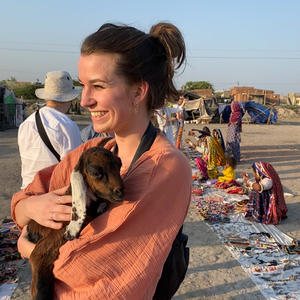It’s International Women’s Day, and although we believe women should be celebrated every single day of the year, sadly, this isn’t always the case.
This particularly applies to countries across the globe where gender equality is, at worst, virtually unheard of and at best, not prioritized and making little headway.
According to the WHO, global estimates indicate that one out of three women across the world have experienced intimate partner violence or non-partner sexual violence in their lifetimes, 62 million girls are denied education across the world and FGM affects more than 200 million girls and women alive today in 30 countries.
Often, these problems are perpetuated by cultural expectations of women, but these issues have knock-on effects. Economically speaking, when women can’t or are not allowed to work, huge amounts of money are lost through this untapped labour-force. A gender-balanced world benefits everyone.
It’s as good a day as any to celebrate all women, but we’ve narrowed down some female entrepreneurs and female-friendly initiatives that we find particularly inspiring, not just because they’re women, but because they defied cultural expectations and ventured to work towards improving the countries they call home.
Lorna Rutto - EcoPost
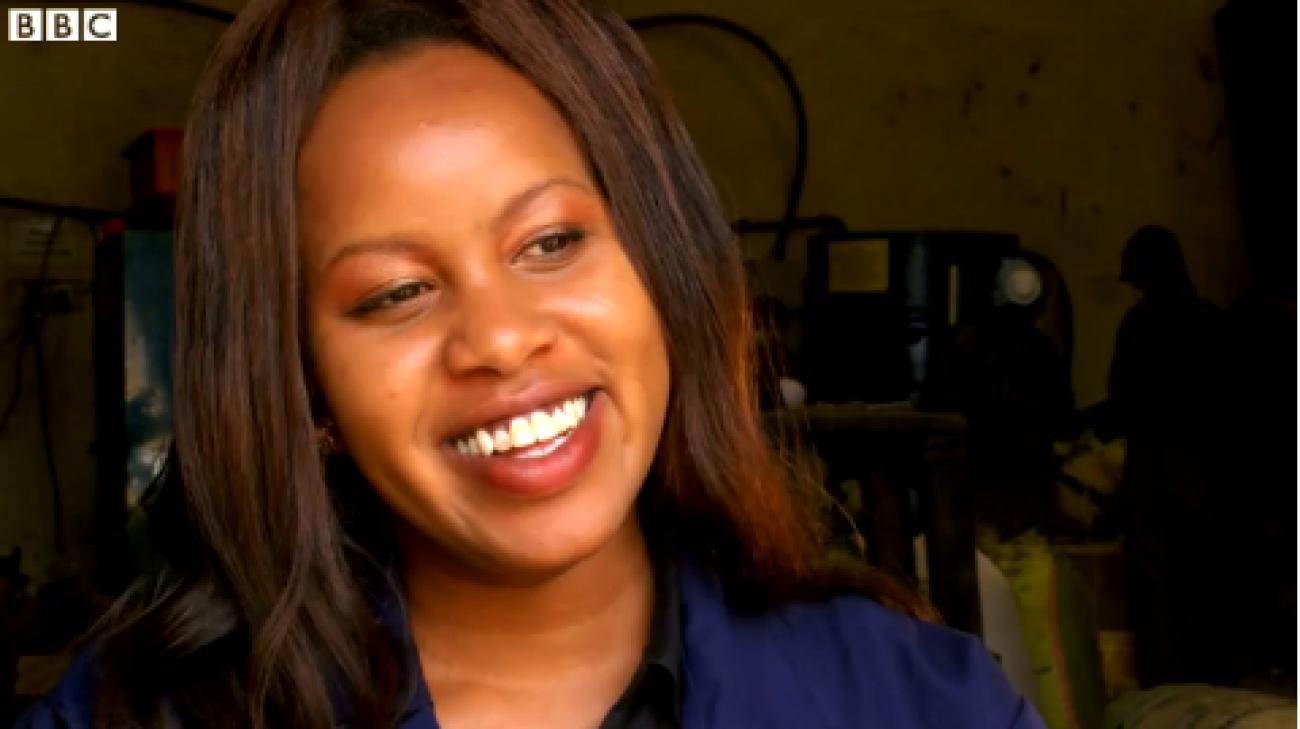
Image from BBC News Africa
Lorna’s story began in the Kaptembwa Slums in Kenya. Her family were by no means affluent, feeling the full force of poverty and unemployment much like the 46% of Kenyans who live below the poverty line. It was here that Lorna noticed the extent of the effects of littering: overflowing rubbish, sewers and most prominently of all, plastic waste. Rather than turning a blind eye, she decided to do something about it and recycled plastic by melting it down and creating jewellery and ornaments, which she then sold on to her peers at school.
After graduating college with a Bachelor of Commerce degree in Accounting, Lorna initially pursued a career in banking. But she soon found herself feeling unfulfilled and longing to follow her heart doing something that could truly make a difference.
And thus, EcoPost was born. The company Lorna founded was built on the desire to rid Kenya of its prevalent plastic waste problem. EcoPost collects plastic waste and manufactures ‘commercially viable, highly durable and most importantly, environmentally friendly fencing posts, used widely across Kenya.’
Lorna has since won several awards for her efforts but more than that has saved over 250 acres of forest and has rid the environment of over a million kilograms of plastic waste. She has provided Kenya with a commercial and environmentally friendly alternative to timber AND its created hundreds of jobs for people, specifically women and the youth in marginalized areas.
She’s looking to scale this project on a national level and considering they’re struggling to meet the demands of their product, it looks like they may well be on the way.
Ivy Huq Russell – Maya
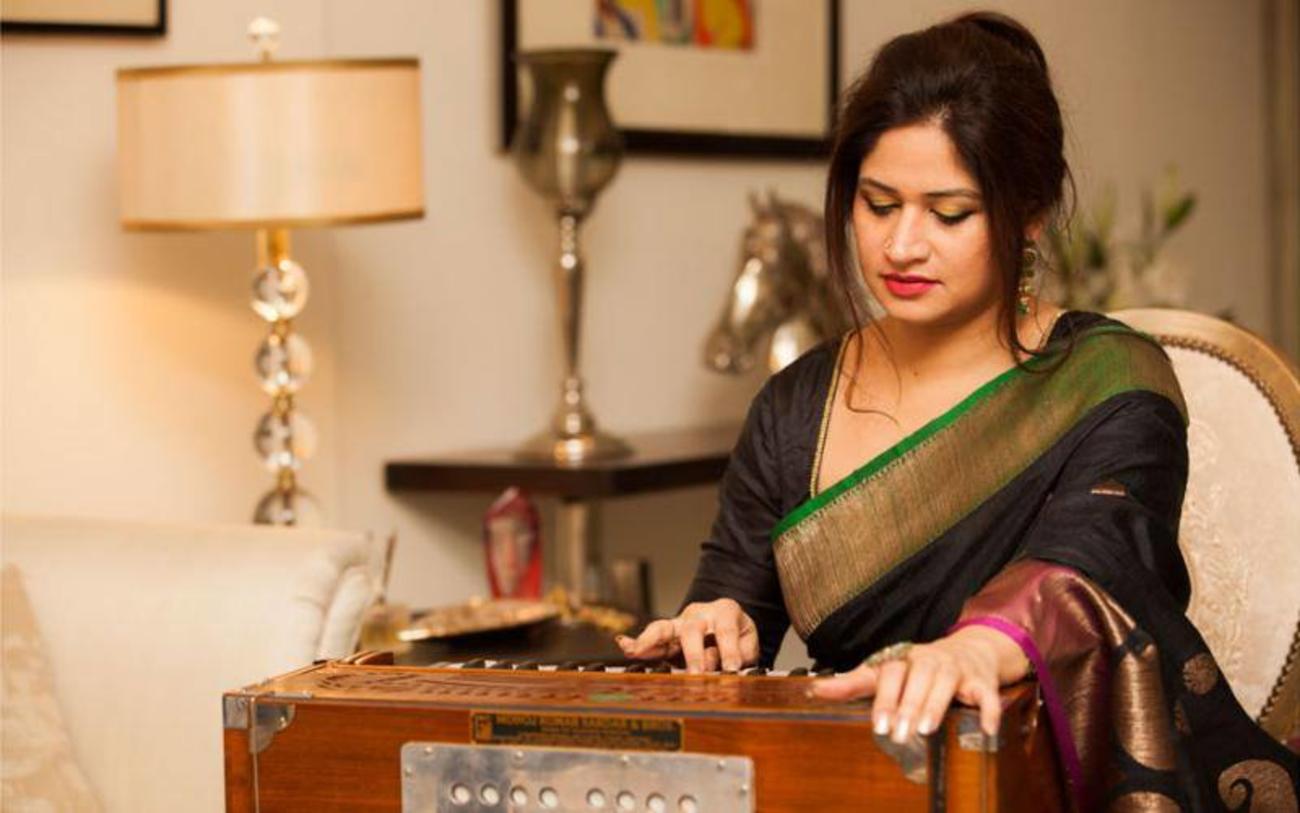
Image from SD Asia
When Ivy Huq Russell fell pregnant, she noticed a gap in the market for Bangladeshi women. Suddenly aware of how fundamental it is to have access to reliable and trusted information when you're expecting a baby from those who had been through the experience themselves - not just medically speaking - she realised how this avenue of communication was lacking for the women in her country.
With over 30% of Bangladesh’s population living below the poverty line, many people cannot afford to access basic healthcare and women’s health issues are not frequently (or indeed, comfortably) discussed in an open forum.
So, while on maternity leave, with a desire to help people and a vision to empower women by giving them access to information and a shared community, Ivy formulated the idea of Maya. It’s the first platform of its kind in Bangladesh where women can anonymously post a question and will receive a response, in Bangla or English, from a team of professionals including doctors, lawyers or psychosocial counsellors.
While it aims to help women in both urban and rural areas, women in more remote areas have even less access to healthcare advice and so the service was developed as an app for very basic smartphones and can be accessed via a computer too. Women also have the opportunity to record their questions if they’re unable to type them. They then receive tailor-made responses within 48-hours.
Not only is it empowering women through technology and information, but it’s also harbouring a more supportive, community-minded Bangladesh.
Jimena Florez – Chaak Healthy Snacks
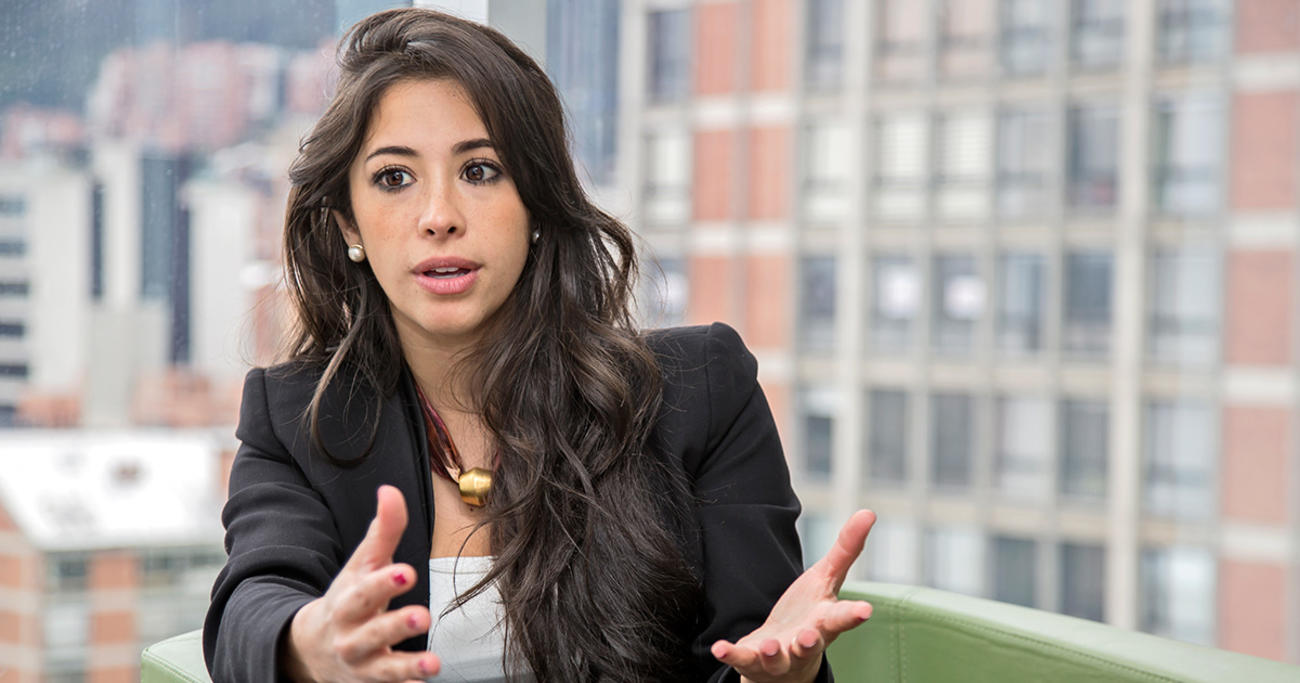
Image from Dinero.com
In a funny case of foreshadowing, Jimena entrepreneurial spirit first emerged when she sold homemade sweets to her classmates from the age of nine. Fast forward and Jimena’s student life turned into a succession of continent-hopping, with everything she learned along the way enabling her to bring home some incredibly well-informed good to her native Colombia.
After graduating from high school, she spent her gap year with a family in Germany. As they produced hops in their very own German brewery, they were able to impart knowledge of the essentials of sustainable agriculture and organic techniques. From there, Jimena studied finance and international relations in Colombia and Australia, learning about the effects of economic growth on the displacement of rural communities.
When she returned to Colombia, she had a mission: to use what she had learnt to help farmers continue their agricultural pursuits in a sustainable way and to educate young, budding farmers to do the same.
To demonstrate the potential of smart farming techniques, she founded a social enterprise which would buy dried fruit from the farmers. She eventually expanded this business, Crispy Fruit, on a national scale.
Jimena ran into some inevitable hurdles during her endeavours to expand outside of Colombia, but she soon identified a market in the US over growing concerns about childhood obesity and eventually partnered up with Rutgers Food Innovation Centre in New Jersey to become Chaak Healthy Snacks.
Partially sourced from the same farmers who benefitted from the sustainable agriculture programs she developed, they now produce healthy, gluten-free, low-sugar snacks for overweight children and has contributed to the social and economic reconstruction of their suppliers.
Fiza Farhan – Buksh Foundation
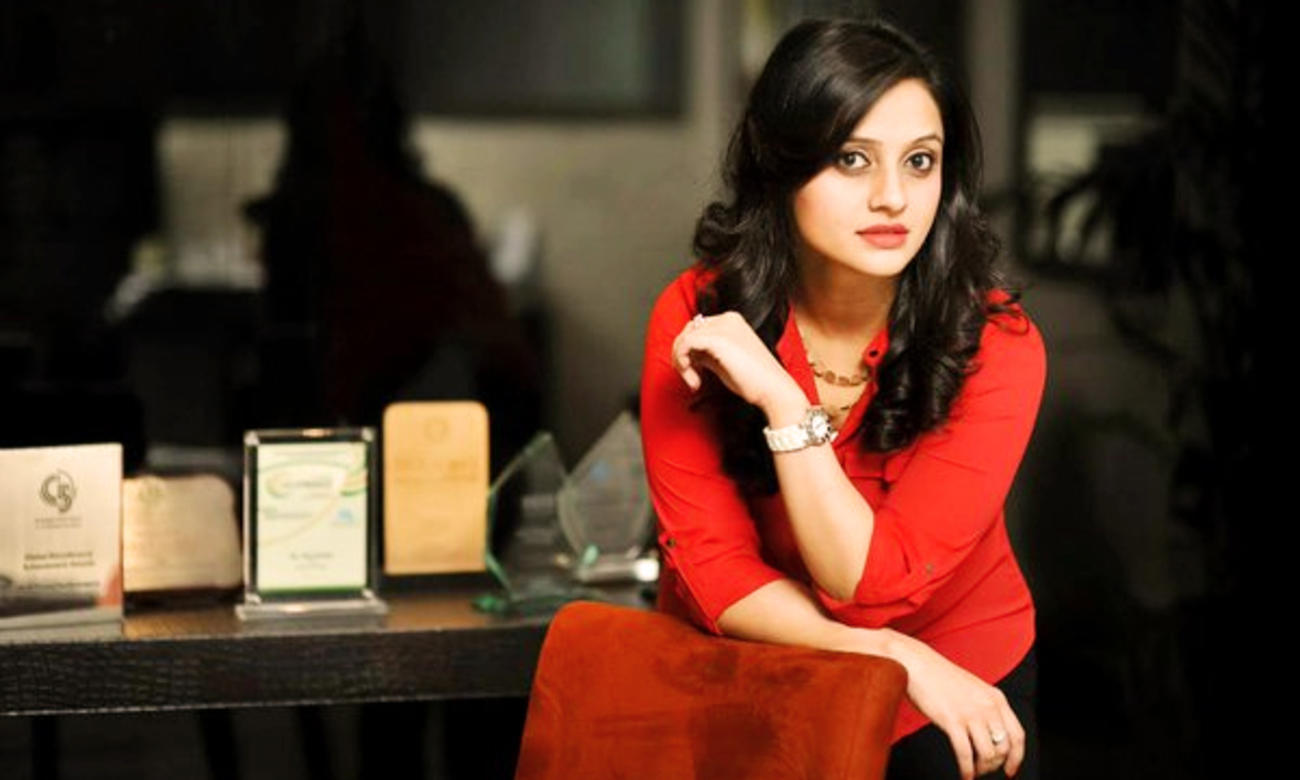
Image from Awakening Women
Fiza Farhan has overcome some serious cultural barriers in her quest to bring clean energy projects to poor, rural areas of Pakistan. She noticed a distinct lack of women, especially in a leading position, within the energy sector and decided to change that. Indeed, she was the only Pakistani to feature on Forbes 30 under 30 list of social entrepreneurs in 2015 and the fourth Pakistani woman to ever appear on the list. And this was at the age of 28.
Growing up in Pakistan, Fiza witnessed first-hand the damaging effects of kerosene lamps on the health of the country’s poor, particularly women and children. Kerosene lamps are used primarily in low-income households and are used as a light source and for cooking. As a result of this, two-thirds of women from developing nations, who are non-smokers, develop lung cancer and up to two million children a year die from respiratory infections related to breathing in harmful kerosene lamp smoke.
This prompted Fiza - who is Director of the Buksh Foundation - to launch a project called ‘Light a Million Lives’ in which they set about trying to provide households in rural areas with safe solar lamps through a micro-financing scheme.
Despite her father’s displeasure at his daughter choosing to study abroad rather than get married and settle down, Fiza has improved the lives of over 45,000 people in Pakistan by providing electricity to over 160 off-grid villages. The foundation has also trained over 135 women to be energy entrepreneurs and has extended business and clean energy loans to over 12,000 entrepreneurs. That's a lot of light in a lot of people's lives.
Brenda Katwesigye – Wazi Vision
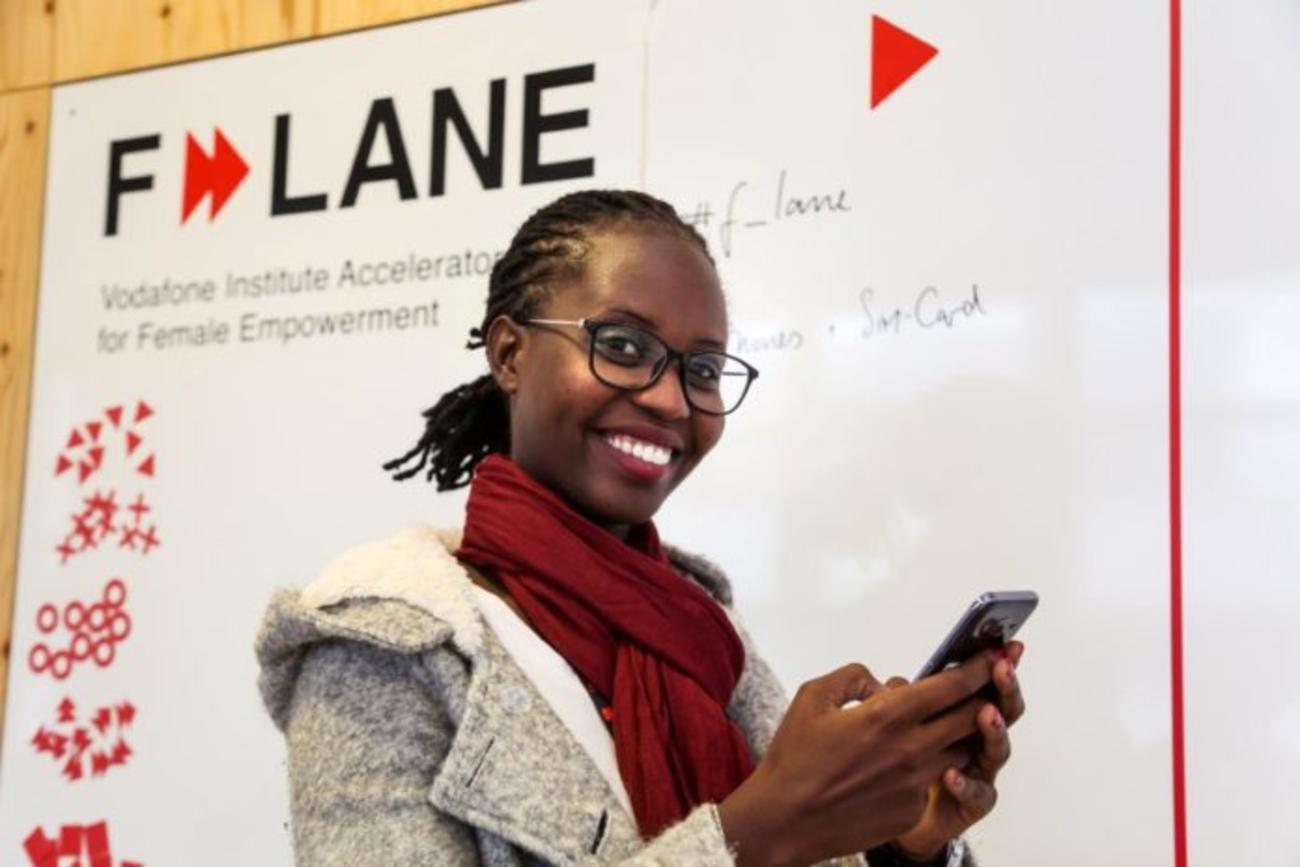
Image by Newz.ug
Short-sighted Brenda was inspired to research ways to make eye tests and glasses more affordable after her first eye test and subsequent purchase of her first pair of glasses. She had a job at an international consulting firm and received health insurance, which is somewhat of a luxury in her native Uganda. But the health insurance only covered some of the eyewear costs and she still had to pay 180 US Dollars to receive her glasses. The average monthly income in Uganda is $40.
But it wasn’t so much the money she had to pay out that concerned her. It made her consider what people of significantly lower income would do if they suffered with poor eyesight. Uganda is one of the poorest countries in the world and over 1.2 million people are considerably affected by visual impairment.
Using her own money, Branda set about finding the right people to help her research and manufacture a way in which to produce glasses at a more affordable rate. And to kill two birds with one stone, she decided to set about making prototypes from plastic waste, something the country had in abundance.
Now, Wazi Vision has developed a mobile kit using virtual reality technology to access and provide eye tests to poorer communities in the country, which requires no optometry expertise to use. They have also been able to provide eyeglasses cheaper than 80% of the cost of other eyeglasses on the market.
Averaging 2-3 tonnes of recycled plastic a week, Wazi Vision has also provided jobs for women who make the glasses themselves and has provided glasses to over 200 schoolchildren in need of visual aid.
Brenda's Wazi Recycling Industries, the parent organisation of Wazi Vision, recycles plastic waste and not only turns it into glasses, but also sustainable building materials such as pavers, floor tiles, wood decking, doors, furniture, foundation slabs, and interlocking blocks – all durable and produced at a low cost. Since its inception, it has recycled 50,000 kgs of plastic, has over 20 female collectors, recycles four types of plastic and is involved in 25 different projects.
The Pink City Rickshaw Company
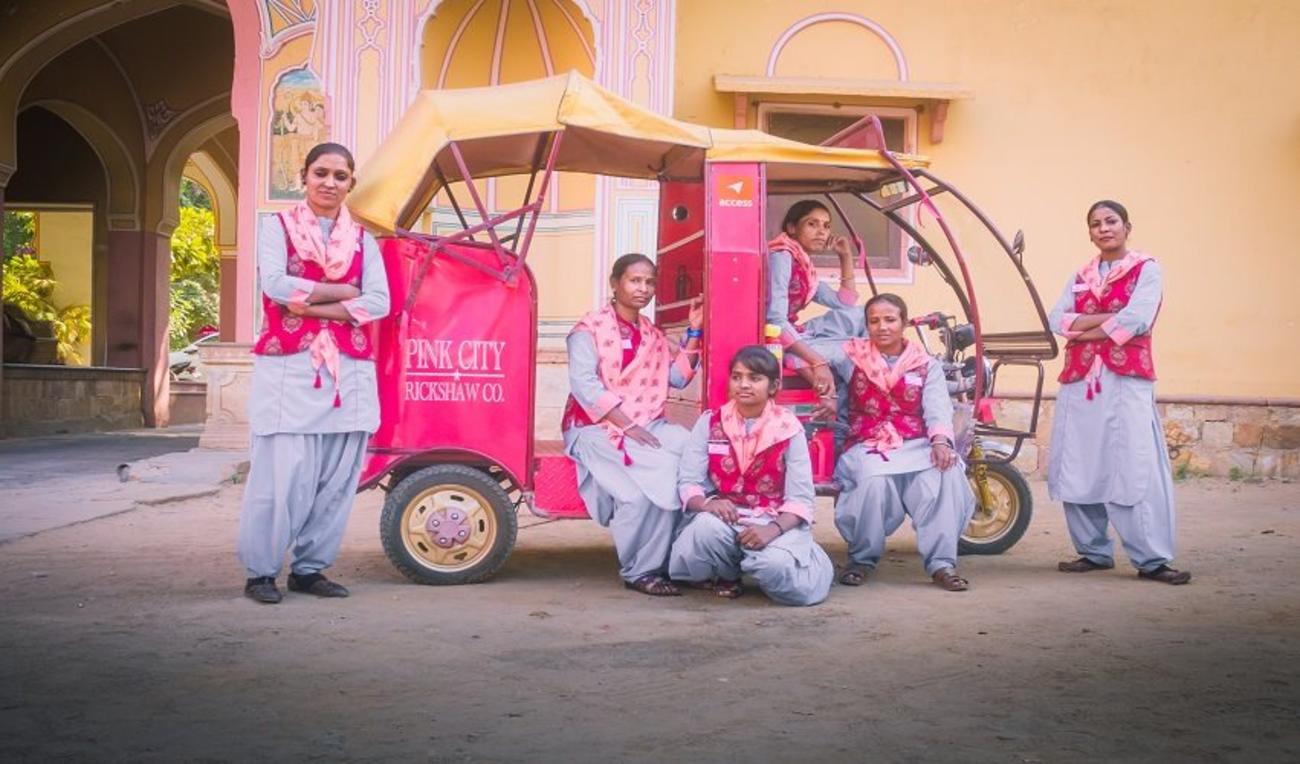
Image from the Pink City Rickshaw Company Facebook page
An innovative initiative from not-for-profit organisation ACCESS Development Services, who focus on reducing poverty in India, The Pink City Rickshaw Company has provided career opportunities for 200 women from low-income households living in Jaipur.
Typically, driving rickshaws has been a male-dominated profession in India, known for its highly patriarchial society. What the Pink Rickshaw Company aims to do is empower women, enable them the opportunity to buy shares in the company and hopefully, one day, own and run the business themselves.
Donned in stylish pink uniforms and perched upon their pretty pink, rather swanky rickshaws these women have undergone intensive training to drive and manoeuvre the busy Jaipur streets. Not only that but their training has equipped them with some English language skills to communicate knowledge of their home to visitors and their natural flair for politeness and charm inspires tourists while they show them the sights and local hotspots of the pink city of Jaipur and Udaipur.
To avoid contributing to the growing pollution problem in India, the Pink City rickshaws are electric and eco-friendly. They even come kitted out with mobile charging ports for tourists to charge their phones while they’re given their tour.
One review of the tour company recounted the strange looks, and at times, brazen heckling these brave ladies received while providing their service because female rickshaw drivers are not a common sight in India.
In that case, it must be true what they say: well-behaved women rarely make history.
